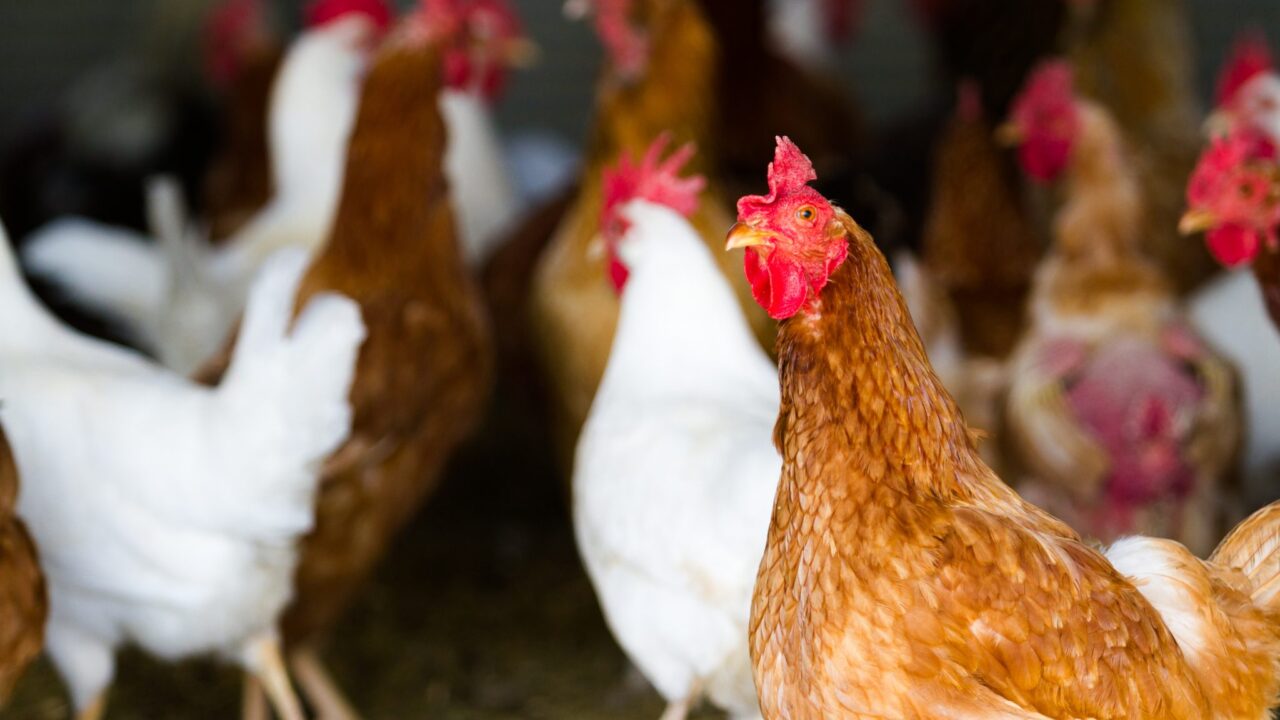The Department of Agriculture, Environment and Rural Affairs (DAERA) has confirmed a suspected case of avian influenza (bird flu) on a commercial poultry premises in Co. Tyrone.
Disease control measures have been initiated following the discovery of a suspect case of notifiable highly pathogenic avian influenza (HPAI) at the premises located near Pomeroy.
The chief veterinary officer (CVO) for Northern Ireland, Brian Dooher has taken the decision based on number of factors including the clinical signs and preliminary results provided by the Agri-Food and Biosciences Institute (AFBI).
Bird flu
In a statement, Minister of Agriculture, Environment and Rural Affairs, Andrew Muir confirmed:
“A suspect case of notifiable avian influenza was reported on Saturday, November 1 and initial results suggest the presence of HPAI.
“The CVO has, therefore, taken the decision, as a precautionary measure, to apply appropriate disease control measures, including the humane culling of all poultry on the site and the introduction of Temporary Control Zones (TCZ) to mitigate for onward disease spread”.
Minister Muir has called on all bird owners in Northern Ireland “from backyard hobbyists to commercial flock keepers with thousands of birds” to adhere to all biosecurity measures to protect their flocks.
Brian Dooher, Northern Ireland’s CVO, added that the disease control measures put in place are “crucial to limit any potential spread of disease”
“I must stress the utmost importance of ensuring continuous excellent levels of biosecurity and reporting any suspect cases of avian flu to DAERA immediately,” he said.
Last month, a protection zone was put in place after bird flu was confirmed at a commercial poultry premises located near Mountjoy, Omagh, Co. Tyrone.
Disease control measures
In order to reduce the risk of bird flu in poultry or other captive birds from wild birds, DAERA has declared the whole of Northern Ireland as an “Avian Influenza Prevention Zone“.
Measures applying with the zone include a requirement to ensure that there is clear separation of areas to which domestic poultry have access and any areas accessed by waterfowl.
In addition, poultry and other captive birds are provided with feed and drinking water which is not accessible to wild birds.
Any person who comes into contact with poultry and other captive birds must take “all reasonable precautions” to avoid the transfer of contamination between premises, including cleansing and disinfection of equipment, vehicles and footwear.
All keepers of poultry and other captive birds in Northern Ireland must comply with minimum biosecurity measures as outlined by the department.
Those keepers with 500 or more poultry or other captive birds must also comply with additional measures.
The measures apply from Saturday (November 1) and shall remain in force amended or revoked.
Biosecurity
The department encouraged members of the public to report dead waterfowl (swans, geese or ducks) or gulls, or five or more dead wild birds of other species in the same location, via the DAERA Dead Wild Bird Online Reporting Tool.
Bird flu is a notifiable disease. Anyone who suspects an animal may be affected by a notifiable disease must, by law, report it to their local DAERA Direct Office.
The Public Health Agency has confirmed bird flu is primarily a disease of birds and the risk to the general public’s health is very low.
The Food Standards Agency has also advised that bird flu poses a very low food safety risk for UK consumers, and that properly cooked poultry and poultry products, including eggs, are safe to eat.

